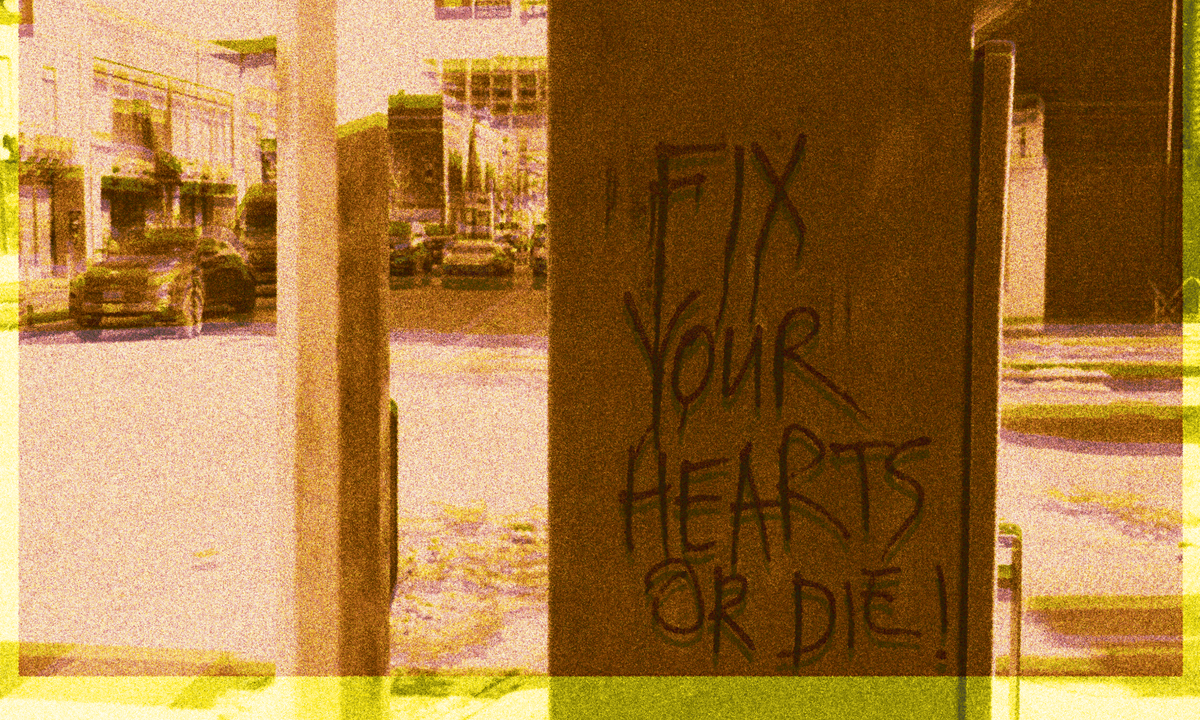Lock The Gates
Maron is vulnerable, but he is also allowed to be in a way that many simply are not.

I think about Marc Maron saying “come on, Gallagher” more than I think about countless memories of significance. It’s a line that filters into my head like an intrusive thought, escapes me almost like a tick. This reaction to Gallagher—the comptroller of prop comics who smashed watermelons and other smashable food on stage with a sledge-o-matic—walking away from a challenging conversation in a hotel room in 2011, 11 years before he passed away.
It’s an interesting interview, in that it was conducted well before the Maron we have known in recent years was fully realized. That is, Maron as the man speaking up and against the rise of comedians fully embracing the depths of the manosphere, comics (mostly, but not exclusively, men) who have touched the darkness pulsing at the centre of power and gained too much critical attention in the process. Comics who are suddenly raised to the status of philosopher kings of a digital kingdom—not by merit but by virtue of being just wealthy and marketable enough to become frustratingly omnipresent—speaking against all the insidious wokeness lurking somewhere beyond the shadows of their mountains of money.
None of this was the backdrop when Maron sat down with Gallagher, but the Maron we know still emerged. The conversation quickly shifting into pointed inquiries into Gallaghers turn towards the racism and petty bigotry in his act. Gallagher got noticeably defensive when pushed on the merit and notions of his shitty racist jokes and his shitty homophobia. Maron, in his trademark rambling opening, says he was curious where the fuck he was coming from with it all, and it ends with Gallagher storming out when he couldn’t stand the heat singing the pads of his feet. In the years between this recording and his death, Gallagher was often described as a racist, bigoted man, prone to the paranoid delusions that would come to define the modern right wing. If this had been a few years later, his career might have been different too. We were thankfully saved having to suffer through what might have been a Gallagher podcast. Maybe with it, he would have finally received the adoring respect he seemed so bitter to have never achieved in life by telling everyone to inject turtle medicine into their necks to avoid getting turned Transgender before smashing a bushel of American Apples™ into a Shure MV7i. Sponsored by Better Health.
Maron’s true strength, in all the conversations and in all the Big Interviews he had over the years, is him. It’s the shambolic, rambling openings. It’s his failures, and his ability to draw them clearly on the page. It’s his desire to see himself in the reflection of anyone he talks to. It’s a rare kind of vulnerability, not transactional and not agenda-driven. It’s the vulnerability of desire, in all forms and permutations. An eagerness to know himself by way of knowing any and everyone. It’s what I, and so many, took away from his body of work. On Thursday morning, I was a guest on Commotion with my friend Elamin Abdelmahmoud on CBC talking about exactly this, but there is more I wanted to say that simply did not fit the time constraints.
Maron is vulnerable, but he is also allowed to be in a way that many simply are not. We trust that a man like him can be vulnerable because we already want them to be. It’s refreshing when it happens, and he is rightfully lauded for it. If more cishet men were so open with their own innate failures and so eager to share them with others, trauma bonding so that we all might feel comfortable being so beautifully broken, we would have a different cultural landscape.
Something Maron did better than most was understanding his failings, specifically when and where it came to being a man in his 50s working in entertainment, and when it came to women. He acknowledged his need for growth, and did the work to move down the path he wanted to trail his feet upon. I have read headlines like his excellent piece in Defector that read There Will Never Be Another WTF with Marc Maron, and this is true, but only because few are allowed to create something like it.
Men like Maron do not need an excuse to speak, to share, and to overshare. To apologize. To grow and change or fuck up and try again. But this is not a grace granted to so many. When I look at the cultural landscape I see men, and I read headlines asking how we can solve their problems and I wonder how many problems they can possibly have with so many people who look just like them sitting in bigger chairs and holding on to their bylines when so many others fall by the wayside. When people from different experiences are not given the same space and safety to be playfully conversation, to challenge and be empathetic with the people they meet.
Maron is a great interviewer because he is curious, and because he lets a conversation be just that, but he is not a conversationalist in a vacuum. He is simply the kind of person that requires no set up. When I get asked to do interviews for Big Media, it is almost always to talk to a man. All the Big Hosts for cultural shows at the CBC for instance are men, most of them straight and all of them cis, and no one will really talk about why that is. We spent a good 48 hours worrying if Jimmy Kimmel’s money was going to be okay, but never once asked hey how come all the hosts of every big late night show are all the same kind of guy? Two of them have literally the same name with any kind of honesty.
I would love a show to be given the chance to reach the status of WTF that is hosted by someone just as conversational, just as open and curious and vulnerable, that is also not hosted by a cishet white man and needs no explanation as to why. This fictional host of a non-existent entity could just be, and never feel the need to set the foundation every time. Their experience, unique in a landscape of men who have been bad but are trying to change, informing their lens on the world and the conversations within it in a refreshing way. Led maybe by their insecurities and vulnerabilities, buoyed by confidence and easy charm. If we want to build the kind of world Maron himself sought, we need to let other people have an opportunity to be beautiful, curious failures in public. We need to stop being afraid of what market research tells money is an unsafe bet.
Speaking personally, it is telling that trans people and the dark secrets of our lives are an eternal headline, but we are rarely if ever the voice on the page. I have written this exact opinion piece before, and I will say it forever until something changes. We have to be more than ideas that exist to be either feared or subjects of thoughtless pity. What would happen if a trans woman was allowed to exist in public and admit to their flaws and shortcomings as a means of building bridges with our vulnerabilities. Not to show our weakness, not to be used as stones against us, but rather to humanize us as humans prone to our flaws. I have seen what happens when trans women fail in small little ways, the loss of jobs and opportunities, and how easily we fall from grace in the public eye. If we were men, we would be allowed to use our own beleaguered status to build great careers worthy of fawning headlines and ponderous profiles. Instead, we are easy to trim and cut around to remove us from the picture.
I am glad for Maron’s time with WTF, and happy I had the opportunity to listen and grow in my own way over the many years of listening. I have not listened to every episode, but I have been there since the first season, and we are all marked by the years that traced its path to the end. I ask then, here at the finish line, how to challenge the idea that his was a marathon that can only be run once by tired and familiar feet.




